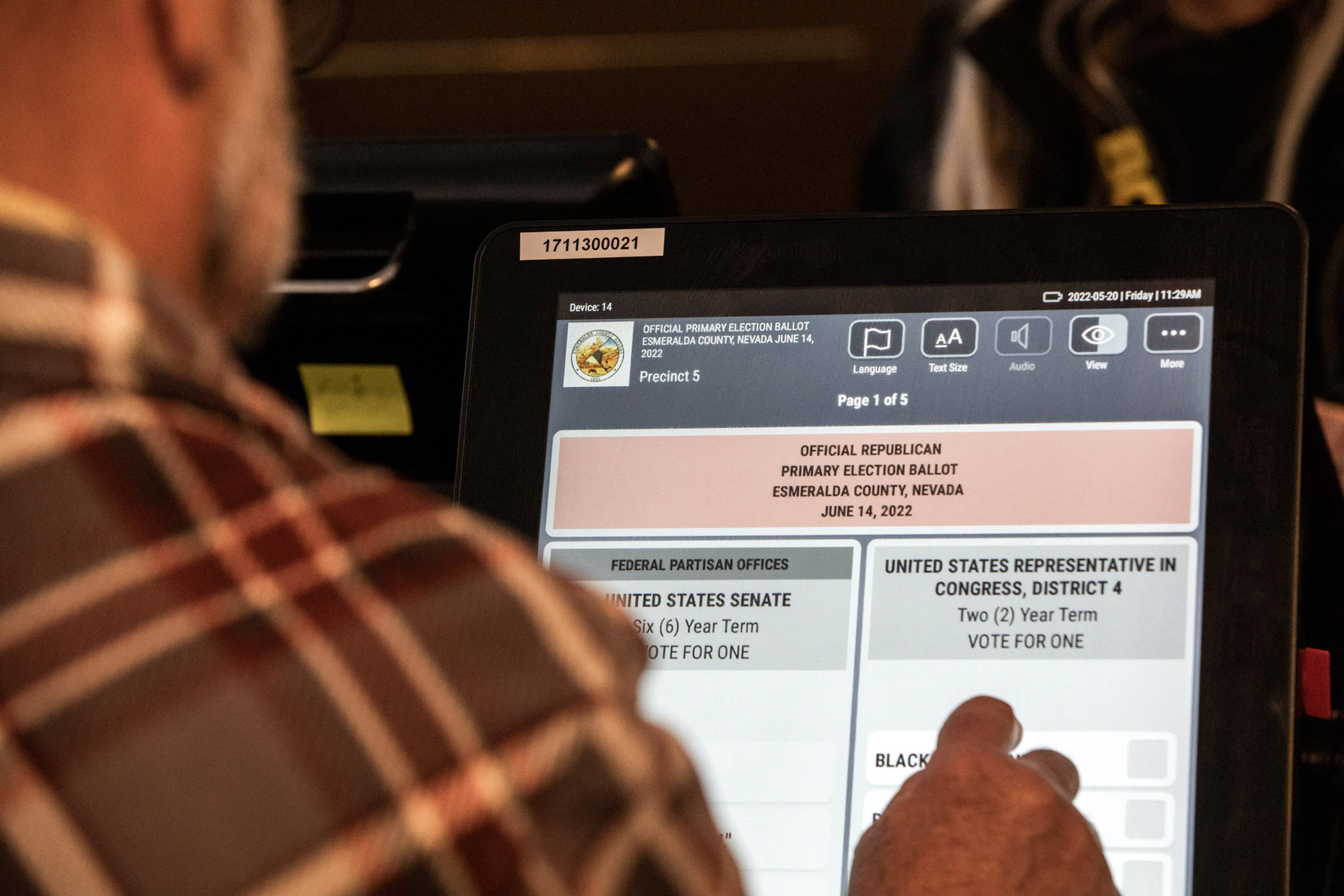The fate of Nevada’s Question 3 might very well depend on how unbearable the general election season seems to ordinary voters.
In 2022, the measure passed by a slim majority — and if voters approve it again this year, it will fundamentally alter the way elections are conducted in the Silver State moving forward. The reform would replace the current closed primary system with an open primary and implement ranked choice voting in the general election.
If implemented, all voters — regardless of party affiliation — would be free to participate in the primary then later rank the top five candidates in the general. Advocates of the reform say these changes would incentivize candidates to appeal to a broader base of voters rather than merely pander to their respective party’s activist network.
Such arguments certainly seem to have some credibility. The most important first step of getting into office, after all, is surviving a primary — an election decided by a narrow and often unrepresentative political contingent within each party.
The current process is one that nearly everyone seems to believe results in voters being forced to decide between “the lesser of two evils” in a general election — a result that experts have suggested incentivizes polarization between the parties, even when voters themselves aren’t particularly divided on major issues. At the very least, it leaves voters choosing between a narrow selection of candidates who aren’t representative of a far more ideologically moderate populace.
However, partisan activists and party leaders seem to disagree with such analysis — which shouldn’t be much of a surprise. After all, the status quo tends to benefit those party insiders who largely run the current duopoly in American politics. No wonder so many of them have come out opposed to reform.
For less rigidly partisan voters, however, virtually any change is seemingly worth considering.
According to a recent poll conducted by Noble Predictive Insights, roughly 55 percent of Nevadans seem on board with at least some component of Question 3’s proposed change to our elections. An impressive number (38 percent) of “true” independents who don’t lean dramatically toward either major party are still trying to make up their mind.
For those who are opposed, this level of uncertainty among true independents doesn’t bode well as we head into a general election where political absurdity is expected to ramp up to 11. The mere fact that we’re about to endure a rematch between former President Donald Trump and President Joe Biden — a rematch the vast majority of Americans seemingly didn’t want — will only serve as a poignant example of just how toxic and unworkable the current process has become.
To be clear, Question 3 wouldn’t change a single thing about presidential contests — it only applies to local, state and congressional races. However, our national discourse trickles downward in this country, and chaos at the top of the ticket doesn’t take place in a vacuum. It’s hard to imagine a world in which those non-ideologically driven voters will look at the electoral inanity emanating from the presidential contest and think to themselves, “Yeah, this current system functions well.”
For many nonpartisan voters, our current electoral process leaves significant room for improvement as it so often incentivizes candidates to pander to narrow factions of increasingly unappealing political parties. Such dissatisfaction with the status quo has undoubtedly driven the rise of independents in recent years — and it’s a trend that will only accelerate as we deal with the next several months of campaign mailers, attack ads and toxic public discourse.
To be fair to critics of Question 3, it seems unlikely that overhauling our electoral process will somehow usher in a utopian age of cordial and respectable civic discourse overnight. As political gadfly Andrew Breitbart once opined, “Politics is downstream from culture” — and our cultural divides often seem every bit as deep and polarizing as some of our policy disagreements in the modern era.
Nonetheless, the abysmally unbearable campaign season ahead isn’t doing Question 3 opponents any favors — especially considering the fact that such opponents include unpopular political “leaders” and deeply entrenched activists on both sides of the aisle. Ordinary Nevadans who are fed up with the tug-of-war between radical elements of both parties are not likely to find representatives from those movements to be particularly persuasive.
Whether or not Question 3 would be capable of producing a more amenable electoral environment is subject to debate, but one thing is certain: The year ahead isn’t going to be a convincing illustration of what is “right” with the status quo.
And for a state that has an ever-growing swath of independent voters, that alone gives Question 3 a sporting chance in November.
Michael Schaus is a communications and branding expert based in Las Vegas, Nevada, and founder of Schaus Creative LLC — an agency dedicated to helping organizations, businesses and activists tell their story and motivate change. He has more than a decade of experience in public affairs commentary, having worked as a news director, columnist, political humorist, and most recently as the director of communications for a public policy think tank. Follow him at SchausCreative.com or on Twitter at @schausmichael.

